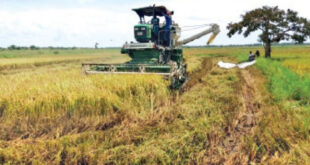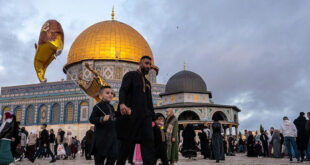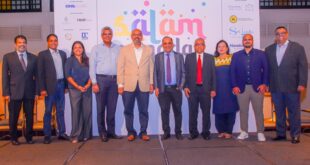The word ‘ Urdu ‘ is derived from Turkish word ‘ Ordu ‘ meaning ‘ Army Camp ‘ or ‘Lashkar ‘ . Exact origin of ‘ Urdu ‘ is some what difficult to trace; but many different theories have been developed to explain it. Mohammad Hussain Azad, an eminent Indian scholar, believes that Brij Bhasha, a dialect of Western Hindi, is the mother language of Urdu. Later on the invasion of Delhi by Muslims engrafted many Persian elements, which resulted in the creation of a new hybrid language called Urdu.
Mehmud Sherani, on the contrary, maintains that Urdu language originated due to the interaction and intermixing of Muslim soldiers and locals (Hindus) after the conquest of Punjab and sindh by Mehmud of Ghazni. During this era many Punjabi words and idioms got interwoven in Hindi of Delhi and thus a new language came into being.
But the most established theory relating the origination, evolution and development of Urdu language is that Urdu is a conglomeration of many different languages manly Arabic, Persian, Pashtu, Turkish, Hindi and some local dialects of India. Muslims ruled over India for about 1,000 years. Muslim army comprised of soldiers of different origins and nationalities speaking different languages. Interaction among these soldiers and with the locals led to the development of a new language, mutually understood by all. This new language named as ‘ Urdu ‘ proved to be a unifying communication tool between the Muslim soldiers during their conquest of ancient India (including Mayanmar).
Languages do not originate overnight, they take centuries to evolve and develop, similarly it took about 5 to 6 centuries to standardize grammatical structure of urdu. Origin of Urdu is traced back to the mid of 10th and beginning of 11th century, but these were the formative years of Urdu language and no significant either literary or grammatical work was done during this period; in the initial years of its birth it was only used as a communication lingo. This hybrid language was called ‘ Hindvi ‘ or ‘ Dehlvi ‘ and was written in ‘ Devnagri ‘ Script. Later on in 14th century this language was introduced in Southern India (Hyderabad Deccan), here also the vocabulary of hindvi expanded many words and idioms of local languages were embedded. People start calling this new version of language spoken in Southern India as ‘ Deccani ‘ . The expansion of vocabulary continued and it changed from ‘ Deccani ‘ to ‘ Rekhta ‘ , and this Rekhta is believed to be the forerunner of modern Urdu language. The standardization of Rekhta(Urdu) took place in 16th and 17th century during the reign of Shah Jehan and Aurangzeb Alamgir, when synthetic character of Urdu acquired a complete form and greater content and power.
Like most other languages of the world, Urdu also started its literature through poetry.
Amir Khusro(1253-1325) a remarkable scholar of Persian and Arabic is considered to be the first ever poet of urdu language. He composed his poems in the then prevailing ‘ Hindvi ‘ language. Wali Deccani (1635-1707) and Quli Qutab Shah are believed to be the predecessors of Amir Khusro. Other eminent poets of this era were
Mir Taqi Mir(1727-1810)
Mushafi(1750-1785)
Mir Dard(1720-1785)
Qaim Chand Puri(1724-1794)
Haider Ali Atish(1778-1846)
Ustad Zauk
Mir Babr Ali Anis(1802-74)
Mirza Asad Ullah Khan Galib(1797-1869) is the greatest poet of urdu language .
He was a specialized Ghazal poet and his work is still popular among the masses.
Urdu poetry did not take his final form until 17th century when it was declared the official language of court. The 18th century saw a phenomenal rise in urdu literature especially urdu poetry. It was at this time when Urdu replaced Persian as lingua franca of the region.
Mughal emperor Bahadur Shah Zafar is also highly esteemed among urdu poets because of his unique style. Amongst the poets of 19th century Allama Mohamad Iqbal(1877-1938) stands out, because he was the first one who introduced revolutionary concepts and ideas in his poetry. Faiz Ahmad Faiz is the most well-known and an distinguished poet of modern era. His work revolves around the concepts of communism and social justice. Beside others Sufi Saints have also contributed a lot in Urdu poetry.
The short story in Urdu began with Munshi Premchand ‘ s ‘ Soz-e-Vatan ‘ . Mohammad Hasan Askari, Sajjad Zaheer, Rajinder Singh Bedi, Krishan Chandar, Saddat Hassan Manto, Ismat Chugtaii, Mumtaz Muffati, Ahmad Nadeem Qasmi and Ashafaq Ahmad are counted among leading lights of Urdu short story.
Novel writing in Urdu can be traced to Nazir Ahmed (1836-1912 CE) who composed several novels like Mirat-ul-Urus (1869 CE), Banat-un-Nash (1873 CE), Taubat-un-Nasuh (1877 CE) etc. Realism in urdu novel was introduced by PremChand. Mirza Mohamad Hadi Ruswa, Sajjad Haider Yaldrem, Niaz Fateh Puri, Abdul Haleem Sharar, Ratan Nath Sharshar are the pioneer Urdu novelists. Khadija mastur, Intizar Hussain, Bano Qudssiya, Aziz Ahmed are the urdu novel writers of modern times.
Akbar Allahabadi (1846-1921) was the pioneer among the Urdu humorists and satirists. Majeed Lahori, Mehdi Ali Khan, Patras Bokhari (1898-1958), Mirza Farhatullah Beg, Shafiq-ur-Rahman, Azim Baig Chughtai, Ibn-e-Insha, Mushfiq Khwaja, Mushtaq Ahmed Yousifi, K.L.Kapur, Amjad Hussain, Mujtaba Hussain, Himayatullah and Talib Khundmeri are the other leading names in the field of humour
In the first half of the nineteenth century, drama started appearing at Urdu scene. The first dramatist is believed to be Amant Lucknowi, and his drama Indar Sabha is considered as the first Urdu drama. Urdu drama has made a lot of progress in recent years. Imtiaz Ali Taj, Agha Hashar Kashmiri, Amjad Islam Amjad, Haseena Moin, Fatim Suriya Bajiha are the most distinguished play writers of present day.
The word ‘ Urdu ‘ is derived from Turkish word ‘ Ordu ‘ meaning ‘ Army Camp ‘ or ‘Lashkar ‘ . Exact origin of ‘ Urdu ‘ is some what difficult to trace; but many different theories have been developed to explain it. Mohammad Hussain Azad, an eminent Indian scholar, believes that Brij Bhasha, a dialect of Western Hindi, is the mother language of Urdu. Later on the invasion of Delhi by Muslims engrafted many Persian elements, which resulted in the creation of a new hybrid language called Urdu. Mehmud Sherani, on the contrary, maintains that Urdu language originated due to the interaction and intermixing of Muslim soldiers and locals (Hindus) after the conquest of Punjab and sindh by Mehmud of Ghazni. During this era many Punjabi words and idioms got interwoven in Hindi of Delhi and thus a new language came into being. But the most established theory relating the origination, evolution and development of Urdu language is that Urdu is a conglomeration of many different languages manly Arabic, Persian, Pashtu, Turkish, Hindi and some local dialects of India. Muslims ruled over India for about 1,000 years. Muslim army comprised of soldiers of different origins and nationalities speaking different languages. Interaction among these soldiers and with the locals led to the development of a new language, mutually understood by all. This new language named as ‘ Urdu ‘ proved to be a unifying communication tool between the Muslim soldiers during their conquest of ancient India (including Mayanmar). Languages do not originate overnight, they take centuries to evolve and develop, similarly it took about 5 to 6 centuries to standardize grammatical structure of urdu. Origin of Urdu is traced back to the mid of 10th and beginning of 11th century, but these were the formative years of Urdu language and no significant either literary or grammatical work was done during this period; in the initial years of its birth it was only used as a communication lingo. This hybrid language was called ‘ Hindvi ‘ or ‘ Dehlvi ‘ and was written in ‘ Devnagri ‘ Script. Later on in 14th century this language was introduced in Southern India (Hyderabad Deccan), here also the vocabulary of hindvi expanded many words and idioms of local languages were embedded. People start calling this new version of language spoken in Southern India as ‘ Deccani ‘ . The expansion of vocabulary continued and it changed from ‘ Deccani ‘ to ‘ Rekhta ‘ , and this Rekhta is believed to be the forerunner of modern Urdu language. The standardization of Rekhta(Urdu) took place in 16th and 17th century during the reign of Shah Jehan and Aurangzeb Alamgir, when synthetic character of Urdu acquired a complete form and greater content and power. Like most other languages of the world, Urdu also started its literature through poetry.
Amir Khusro(1253-1325) a remarkable scholar of Persian and Arabic is considered to be the first ever poet of urdu language. He composed his poems in the then prevailing ‘ Hindvi ‘ language. Wali Deccani (1635-1707) and Quli Qutab Shah are believed to be the predecessors of Amir Khusro. Other eminent poets of this era wereMir Taqi Mir(1727-1810)Mushafi(1750-1785)Mir Dard(1720-1785)Qaim Chand Puri(1724-1794)Haider Ali Atish(1778-1846)Ustad ZaukMir Babr Ali Anis(1802-74)Mirza Asad Ullah Khan Galib(1797-1869) is the greatest poet of urdu language . He was a specialized Ghazal poet and his work is still popular among the masses.Urdu poetry did not take his final form until 17th century when it was declared the official language of court.
The 18th century saw a phenomenal rise in urdu literature especially urdu poetry. It was at this time when Urdu replaced Persian as lingua franca of the region. Mughal emperor Bahadur Shah Zafar is also highly esteemed among urdu poets because of his unique style. Amongst the poets of 19th century Allama Mohamad Iqbal(1877-1938) stands out, because he was the first one who introduced revolutionary concepts and ideas in his poetry. Faiz Ahmad Faiz is the most well-known and an distinguished poet of modern era. His work revolves around the concepts of communism and social justice. Beside others Sufi Saints have also contributed a lot in Urdu poetry. The short story in Urdu began with Munshi Premchand ‘ s ‘ Soz-e-Vatan ‘ . Mohammad Hasan Askari, Sajjad Zaheer, Rajinder Singh Bedi, Krishan Chandar, Saddat Hassan Manto, Ismat Chugtaii, Mumtaz Muffati, Ahmad Nadeem Qasmi and Ashafaq Ahmad are counted among leading lights of Urdu short story. Novel writing in Urdu can be traced to Nazir Ahmed (1836-1912 CE) who composed several novels like Mirat-ul-Urus (1869 CE), Banat-un-Nash (1873 CE), Taubat-un-Nasuh (1877 CE) etc.
Realism in urdu novel was introduced by PremChand. Mirza Mohamad Hadi Ruswa, Sajjad Haider Yaldrem, Niaz Fateh Puri, Abdul Haleem Sharar, Ratan Nath Sharshar are the pioneer Urdu novelists. Khadija mastur, Intizar Hussain, Bano Qudssiya, Aziz Ahmed are the urdu novel writers of modern times. Akbar Allahabadi (1846-1921) was the pioneer among the Urdu humorists and satirists. Majeed Lahori, Mehdi Ali Khan, Patras Bokhari (1898-1958), Mirza Farhatullah Beg, Shafiq-ur-Rahman, Azim Baig Chughtai, Ibn-e-Insha, Mushfiq Khwaja, Mushtaq Ahmed Yousifi, K.L.Kapur, Amjad Hussain, Mujtaba Hussain, Himayatullah and Talib Khundmeri are the other leading names in the field of humour In the first half of the nineteenth century, drama started appearing at Urdu scene. The first dramatist is believed to be Amant Lucknowi, and his drama Indar Sabha is considered as the first Urdu drama. Urdu drama has made a lot of progress in recent years. Imtiaz Ali Taj, Agha Hashar Kashmiri, Amjad Islam Amjad, Haseena Moin, Fatim Suriya Bajiha are the most distinguished play writers of present day.
 Sri lanka Muslims Web Portal Sri Lanka Muslims News Center
Sri lanka Muslims Web Portal Sri Lanka Muslims News Center

 Donate
Donate



Thank you for such a great arcticle .I learned so much about urdu language.
May god bless you.
Excellent work, amazing my friend. thanks for sharing such a brilliant piece of research. You presented the huge work in one blog very beautifully, very impressive. God bless you, keep sharing
I ma from Hyderabad I bur havfe lved inthe US for maore years than India . I aloways wanted tonknow the rots of this most romatic language inthe world. Thanks for your reseearched work . this is excellant piece of information.l God bless you
Fantastic Information of URDU language.. I just loved it..
Exceptionally well researched & presented. May the language and its admirers grow in the sub-continent and beyond.
A well written note covering all important aspects of Urdu history, including all genre of its literature, names of poets from beginning to date, names of suthors of short stories, novels, dramas, humorous writers and more. I learnt even more of what I was looking for about my mother tongue; my thanks to the writer. Maas Salamm. —Mohammad Imam
maasha allaah we need more